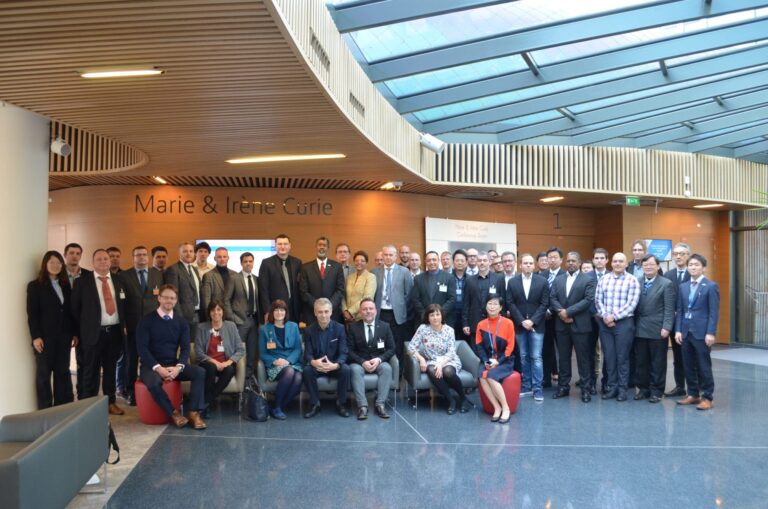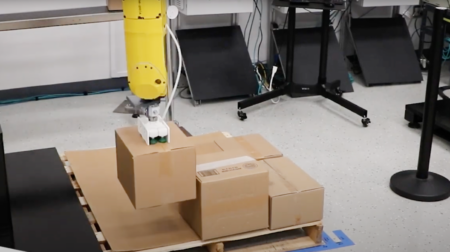University of Birmingham Professor of Robotics, Rustam Stolkin, has been elected as Chair of a new international Expert Group on Robotic and Remote Systems (EGRSS).
The EGRRS is part of the Organisation for Economic Co-operation and Development’s (OECD) global Nuclear Energy Agency (NEA), which brings together the governments of 33 member nations
Prof. Stolkin was unanimously elected to chair the EGRRS at a recent inaugural meeting, which brought together 40 experts from 14 OECD member countries as well as three international organisations including the European Commission.
The OECD-NEA contacted Prof. Stolkin one year ago, and asked him to work with them to create the EGRRS, which focusses on the application of robotic and remote systems (RRS) for nuclear decommissioning.
After a year of collaborative work, the EGRRS was formally launched in December 2019 at the OECD’s Paris headquarters. The EGRRS has an initial remit for two years, with potential for future extension.
As well as establishing the Extreme Robotics Lab (ERL) at the University of Birmingham, Prof. Stolkin is currently the Royal Society Industry Fellow for robotics, part-embedded with the UK’s National Nuclear Lab, which provides decommissioning expertise and services to UK and international nuclear sites.
He is also director of the UK’s National Centre for Nuclear Robotics, a £42m consortium of 12 research institutions and industry stakeholders, developing robotics, sensing and AI technologies to address major societal challenges posed by nuclear environments and materials.
Stolkin said: “I feel deeply honoured to be elected as Chair of this high-profile Expert Group, an appointment which reflects the consensus of the expert international community that the UK National Centre for Nuclear Robotics is a world-leading and pioneering institution.
“My election as Chair received strong support from the European Commission, which is actively participating in the EGRSS and is promoting the H2020 RoMaNS project [Robotic Manipulation for Nuclear waste Sorting and Segregation] as its flagship robotics project.”
H2020 RoMaNS was a €7m (£5.95m) European Commission project, led by Prof. Stolkin at Birmingham, which brought together five labs in three countries between 2014 and 2018.
The success of RoMaNS helped the University of Birmingham to win funding to create the National Centre for Nuclear Robotics, established in 2017.
In order to work with the OECD, Prof. Stolkin was formally nominated by the UK Department for Business, Energy & Industrial Strategy, via the UK Foreign and Commonwealth Office. He is therefore serving as a representative of the UK, in an ambassadorial role with the OECD.
According to the University of Birmingham, some 4.9 million tonnes of legacy nuclear waste requires cleaning up in the UK, which the university describes as “the largest and most complex environmental remediation task in Europe”.
In 2019, that Nuclear Decommissioning Authority said it expected the clean-up to cost up to £232bn and take 120 years to complete.
Much of this work must be done by robots because the materials are deemed too hazardous for humans. However, many of the necessary advanced robotic solutions have not yet been developed, said the University of Birmingham in a statement.
“Without significant robotics advances, it is expected that one million entries of human workers will be needed into contaminated zones, wearing air-fed plastic suits,” it added.
Robotic systems are needed for monitoring, maintenance and Plant Life Extension in the UK’s current fleet of operating nuclear power stations, however it is believed that robots will also be an essential element in the design of new-build reactors.
The nuclear industry is reportedly increasingly keen to embrace advanced robotics technologies, to make complex operations, in hazardous environments, safer, faster and cheaper.








